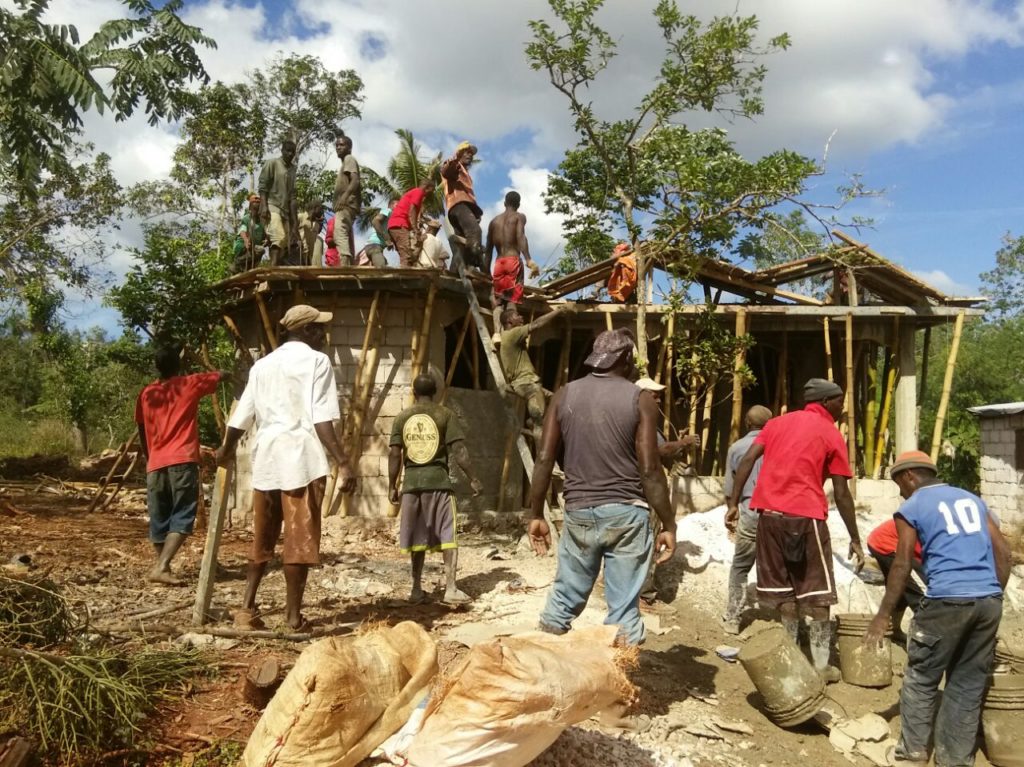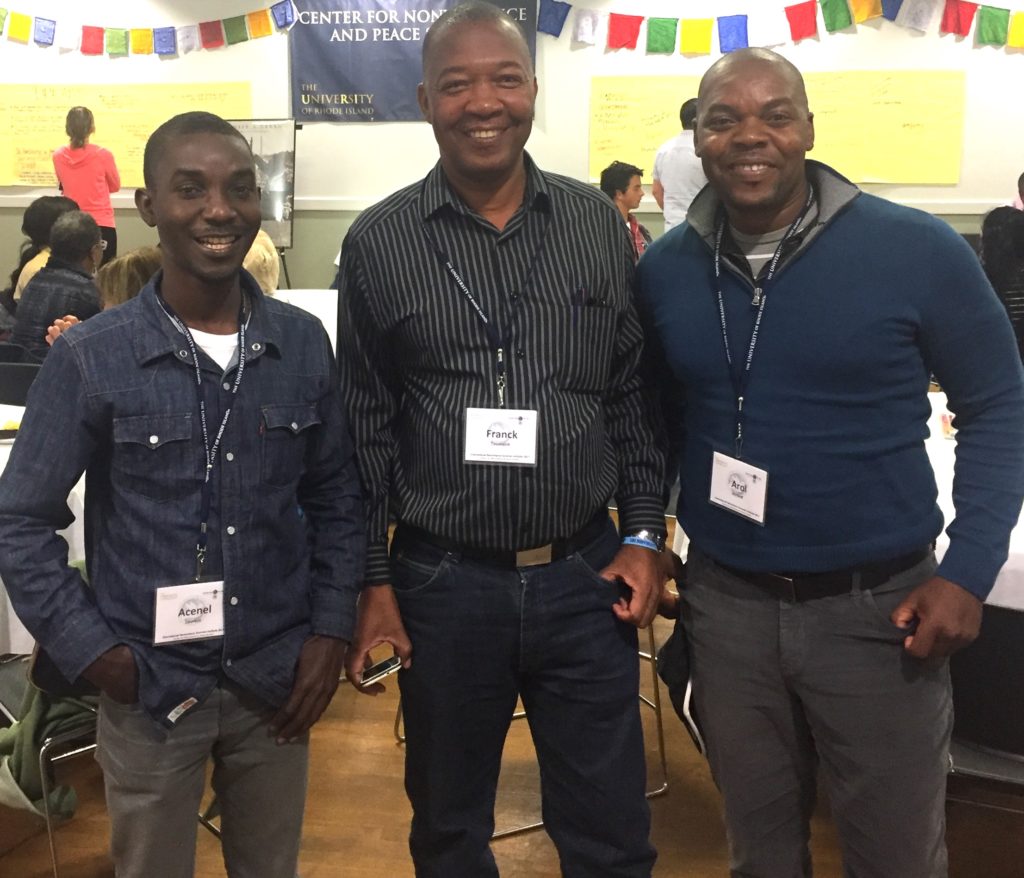by Dave Seifert
There’s an old saying that if you give a person a fish, you feed them for a day. But if you teach them to fish, you feed them for a lifetime.
A ministry at St. David’s-on-the-Hill in Cranston which focuses on Haiti is trying to do that just. Right after Hurricane Matthew struck the southern part of Haiti in October 2016, leaving thousands of homeless, Dr. Norly Germain — a native of the region — supported by the parishioners of St. David’s, started a mission called “Hope and Change for Haiti.” The Cranston volunteers not only work alongside people in Haiti to build sustainable and secure houses and cisterns, but they also work closely with communities there to identify and train leaders. Germain works as an adjunct professor at the University of Rhode Island (URI), the Community College of Rhode Island, and Johnson & Wales University, and the first training occurred this summer at the Center for Nonviolence and Peace Studies at URI. “Hope and Change for Haiti” is a 501(c)3 nonprofit organization whose primary purpose is bringing hope and support to victims of natural disasters in Haiti, particularly to people in the community of Paillant.
Contributions, especially from St. David’s members, allowed the start of construction of a three-room house there last spring. The goal is for volunteer workers to build sturdy and earthquake- and hurricane-resilient homes alongside a 15,000-gallon cistern to collect rainwater for the most impoverished families and victims of Hurricane Matthew.

That storm alone resulted in the deaths of more than 10,000 people, destroyed 250,000 homes and caused $1 billion in damage. And that was on top of damage from a 2010 earthquake, much of which has not yet been rebuilt.
Germain, co-founder and executive director of the organization and a St. David’s vestry member, said “Our objective is not to provide everything to the population, but to work with them to identify and to implement sustainable solutions. In discussions with
them, we learned that housing and water are the first two problems to solve to target other problems such as education and healthcare.
“So we began by focusing on building homes and a cistern — for families who either lost everything during the natural disaster or had nothing at all,” he added. “We plan to create wealth by providing a goat per child in the community to raise, so that in the near future a baby goat can be sold to pay for school tuition.”
Additionally, the group has started training potential Haitian leaders to further strengthen the communities there. In early June, three Haitians spent two weeks at URI, completing a course in leadership development and conflict resolution. Now they’ve returned home and started to work.
Germain said one of the visitors was a veterinarian who will assist with the goat project. “We identify leaders who come to the United States to receive training and return home to take the lead in organizing and running our projects,” he explained. “They need to feel responsible for their change. We believe that is the only way to create real social change — by giving them guidance but let them do it.”

Hope and Change for Haiti works with a respected local organization in Haiti, sending funding to purchase building materials. All construction work is completed by volunteers, which Germain said means the cost of those homes is only 25 percent of the cost of homes built by other nongovernmental organizations or the Haitian government.
The group is looking for additional partners and donors beyond St. David’s. If you’re interested in being involved, making a contribution or learning more about the group’s work, contact them at: hnc4haiti@gmail.com or visit the Hope and Change for Haiti website or Facebook page.
